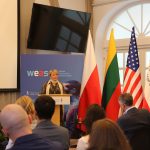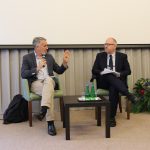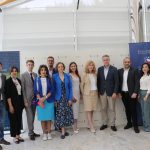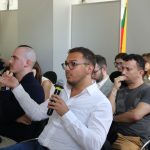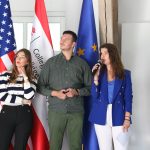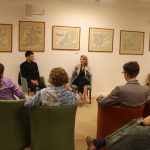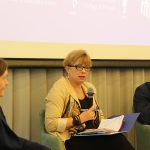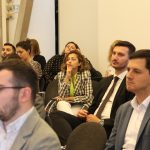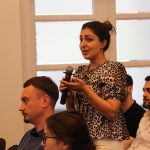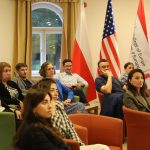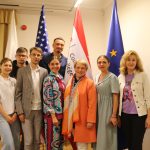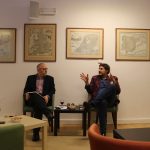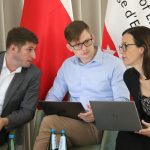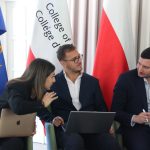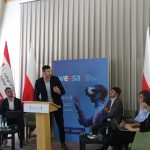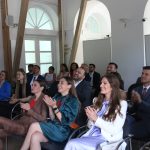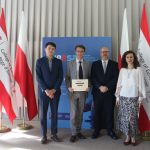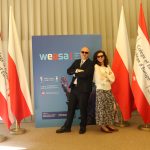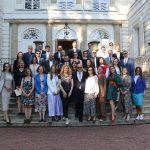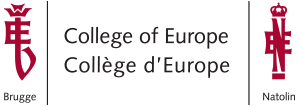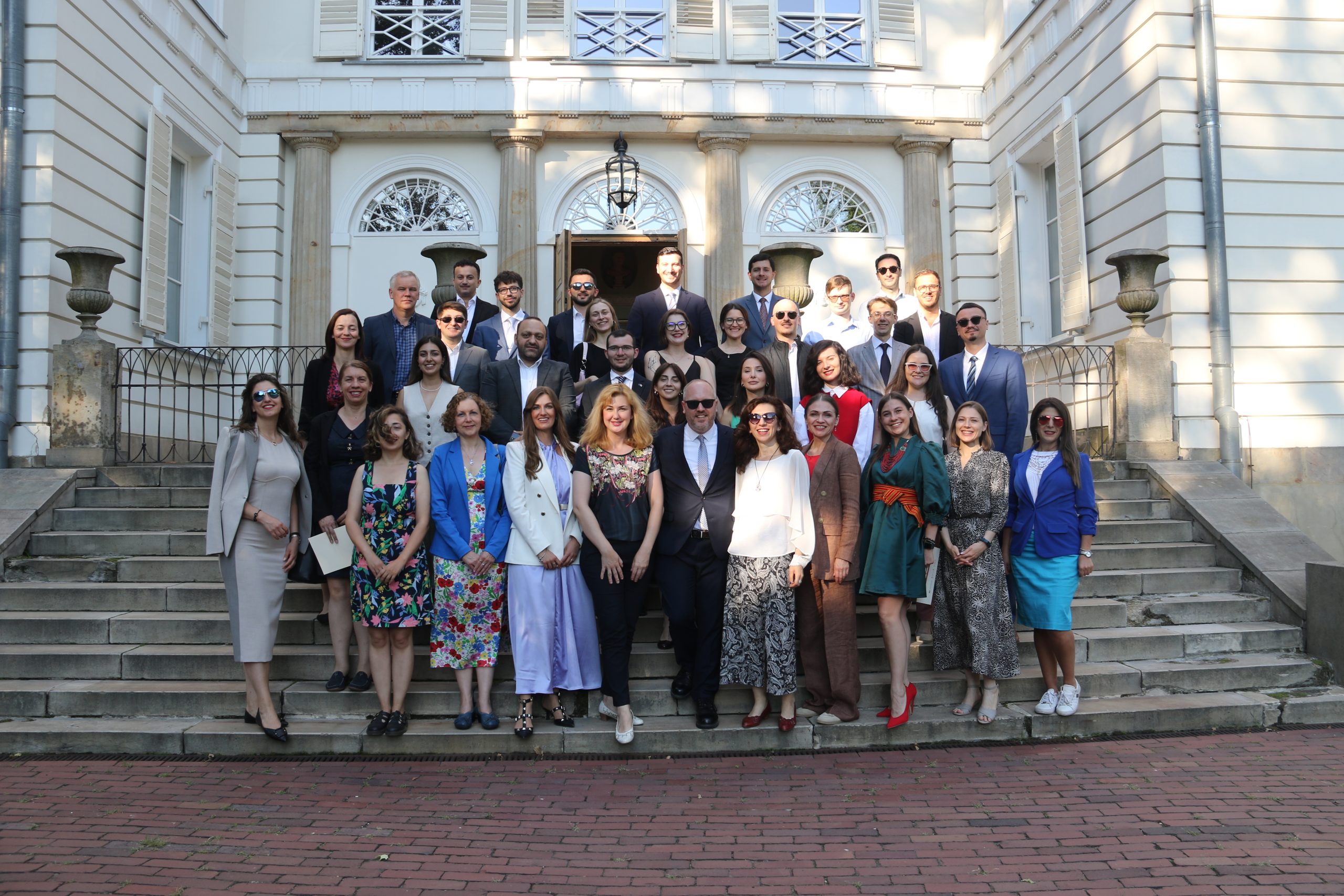
WEASA 2024
Seeking for momentum: Embracing Euro-Atlantic integration in times of crises
On behalf of the partner organizations of the Warsaw Euro-Atlantic Summer Academy, we are pleased to announce that recruitment is now open for WEASA 2024 which will take place in July 1-7 2024 in-person at the College of Europe in Natolin in Warsaw, Poland.
WEASA is an annual summer school for mid-career professionals from the Eastern Partnership and the Western Balkans. WEASA was founded in partnership by: The College of Europe in Natolin, the Polish-American Freedom Foundation and the German Marshall Fund of the United States.
This year’s theme is: “Seeking momentum. Embracing Euro-Atlantic integration in times of crises”.
Europe’s political and geopolitical climate is currently marked by significant tension. Russia’s continuing aggression towards Ukraine has entered its third year with no sign of diminishing. As Vladimir Putin cements another six-year term as Russian president, concerns about the escalation and potential spread of the conflict have begun to intensify. At the same time, elections in the European Union and the United States have brought new challenges to assistance for Ukraine and some signals of growing fatigue in Euro-Atlantic unity. Simultaneously, the prolonged conflict’s geopolitical repercussions have compelled the European Union to take decisive actions. On December 14th 2023, the European Council announced its decision to open accession negotiations with Ukraine and Moldova, and to grant Georgia candidate status. On March 21st 2024, the European Council decided to initiate accession negotiations with Bosnia and Herzegovina. Bosnia is the last Western Balkan state (apart from Kosovo) to receive such recommendation. These decisions reaffirm the strategic approach by the EU and its member states towards nations expressing significant interest in EU membership and will be one of the cornerstones of this year’s WEASA.
Objective for WEASA 2024
This year, our objective is to bring participants from Eastern Europe and Western Balkans to the College of Europe in Natolin to debate current issues related to European enlargement, security and geopolitics; to exchange experiences and find common solutions which would advance Euro-Atlantic integration in the long run. WEASA 2024 will also help participants to develop new skills and help them be more aware of the challenges their countries face in their European integration and to start thinking of ways to overcome them. WEASA 2024 will also be an opportunity for networking, sharing experiences and ideas, and learning how the region can work together to better strengthen its readiness for integration, build a more resilient society and understand its place in Europe and the world.
For this reason, we have developed a program of lectures, workshops, debates, and individual skills-building sessions, to best address our aims and objectives.
This year’s WEASA will cover such topics as:
- How to revitalize Euro-Atlantic integration in difficult times
- Lessons learned from previous enlargements
- How to strengthen democratic resilience
- The challenge of cybersecurity in the democratic process
- Fighting against disinformation and an introduction to OSINT
- European integration outlook for Eastern Partnership and Western Balkans
- Personal digital security: practical tools for being safe online
- Geopolitics and the changing world order – what it means for the future of Europe?
The program is designed to ensure a perfect combination of lectures, workshops and panel discussions providing both theoretical and practical background. The approach to the content was adjusted based on the suggestions of our alumni members. Here is WEASA 2024 Program
You can find out more about the Speakers of WEASA 2024 here.
In addition, we have introduced some novelties to the summer academy content structure. The participants of the summer academy will present their countries from the perspective of Euro-Atlantic integration and indicate the main challenges their societies face in this process. Furthermore, the participants will take an active part through a specially organized Oxford Debate and a simulation game!
Dates and location:
WEASA 2024 will take place in July 1-6 2024 in-person at the College of Europe in Natolin in Warsaw, Poland. Participants shall plan to arrive on June 30th and depart on July 7th. Please, be aware that no early or late arrivals/departures will be accepted as Natolin hosts other activities before and after WEASA.
Deadline:
The deadline for submitting the applications is April 26 2024!
WEASA organizers reimburse participants’ travel costs for travel for up to 350 euro.
The accommodation and food for the whole duration of the summer academy will be fully covered by the organizers.
- The full program of WEASA 2024 will be available soon
- Information about WEASA2024 Speakers will be available soon
Participants / Eligibility
WEASA 2024 will host 35 participants coming from a cross-section of society and specifically from public administration, academia, NGOs, think tanks, media and civil society organizations who are citizens of the Eastern Partnership and the Western Balkans.
We typically look for mid-career professionals (usually those with at least five years of professional experience), who work as policy analysts, experts, advisers, civil servants, journalists, private sector specialists and in NGOs and are interested in WEASA related topics.
Participants must agree to accept the WEASA Regulations / Rules of Procedure. Please be familiar with them before applying to WEASA.
Questions can be directed at: contact@weasa.org
Every year, WEASA carefully monitors the global geopolitical developments and creates its concept note through extensive brainstorming, analysis, and lengthy consultations with its partners and alumni. Please, be aware that there is copyright protection for the content that WEASA and its Speakers. Any attempt to solidify, multiply, copy, distribute or otherwise disseminate the content of WEASA without prior consent from WEASA or without making a clear reference of WEASA would be deemed a copyright infringement.
Are you WEASA 2024 alumni?
Join WEASA community! Once you register, your account will be verified by the WEASA team to confirm your participation. Please sign up with the same name/last name that you used during your participation so we can easily locate you.
Sign in
